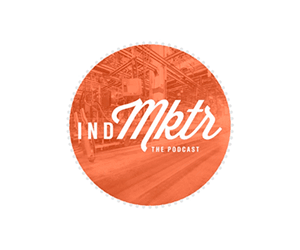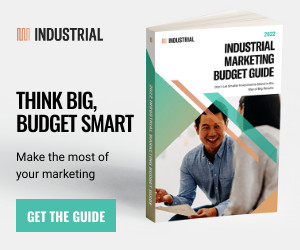Your recruitment marketing campaign should be evolving in line with your overall equipment efficiency, supply chain strategies and product development. Recruitment requires a disciplined, data-driven approach. The post-pandemic job prospect wants a say in how decisions are made. But it’s not just about the work. They also want their employer to be vested in the community, more sustainable, and invested in making the world a better place.
That’s a lot to account for if you are going to thrive through the pending retirements of many key performers and the shifting workforce expectations. That’s why you should be considering an integrated strategy for your recruitment marketing campaign, much as you do for your line of business. You should aspire to have a transparent, technologically enabled approach that constantly measures tactics so you can adjust what’s not working and leverage what is working.
Start with the candidate’s career journey, use multiple channels that strategically support one another across owned, earned, paid, and social media. Set objectives in terms of cost per lead and cost per hire. Ultimately, you want to be where candidates are and to be ready to deliver the right message, at the right time, in the right context.
Yes, it’s a lot. In this episode of the Industrial Marketer podcast, Joey and Nels discuss how to improve your chances for a successful recruitment marketing campaign by following three guidelines. Effective recruitment starts with defining your employer brand, clarifying your candidate personas, and developing your strategic playbook
1. Establish Your Message
You face a lot of challenges to attract manufacturing workers in the current workforce market — including everything from industry perceptions to entry-level pay increases that may have not kept pace recently with other industries.
The first step in attracting prospective candidates is to hone the message for why someone should want to work for you. This is the intersection of brand and culture. It should include what your company does and what makes you authentic. What do you stand for? What is it about working at your company that employees value the most? Why do people stay?
Collaborate with your team to develop and present this message. At a minimum, you should have a video that resides on your site that captures your employer value proposition and brand perception and that can be widely distributed. You can also capture this in other content and messaging. Communicate the unique value that you offer to your targeted candidate profiles — from core values and company culture to benefits/perks and opportunities for career growth.
2. Identify Your Targets
Your workforce recruitment marketing should be filling talent funnels much like your marketing supplies prospects for your sales funnels. There is a prospect journey. So it is essential to fill those talent funnels with the right prospects based on your key criteria — such as qualifications, interests and competencies.
It’s important to have workforce channel knowledge. As overall information consumption has become more fractured, your prospects are going to be found in more places. Some job boards may work from some positions at your company, but not for others. Likewise, social channels are not going to be a source for every job posting but might produce results for some.
The more data you can collect around your recruitment marketing campaign performance, the more you can refine your strategies and adjust your tactics.
3. Develop Your Strategies
An integrated hiring campaign will include inbound and paid tactics. In many cases, manufacturers are trying tactics such as programmatic advertising, for the first time. The campaign will connect the dots by aggregating data from various sources to provide real-time visibility into critical data. The goal is to take the subjectivity out of data, making optimizations easier and overall performance more effective.
Employers also are redoing their recruitment processes to meet the changing demands of current prospects. For example, in the white-hot world of truck driver recruitment, employers need a recruitment process with as little friction as possible. Your chances of hiring experienced drivers greatly increase with:
- A quick application process that screens experienced applicants in minutes
- A responsive team of recruiters who can respond immediately to vet candidates and make real offers
- An onboarding process that quickly puts new drivers on the road so they are not without income, which can mean as few as 48 hours from hire to hitting the road
Meanwhile, when it comes to machine operators, manufacturers are leveraging AR tools so that applicants can visualize what the job entails, eliminating some of the ambiguity in the recruitment and onboarding process.
Look Beyond Your Recruitment Marketing Campaign
You can improve your recruitment and hiring processes beyond your hiring campaign. Here are a couple of questions to ask your team:
- How could you leverage an employee referral program? How can you incentivize your employees to encourage people they know to apply?
- Do you do exit interviews? They can help refine your processes and identify gaps in your culture and inform how you onboard new employees.
Your brand is more than your products. The more you focus on your people, the better you will become at recruitment.
Listen to the Podcast for More on Recruitment Marketing
For more insights into how to develop a successful recruitment marketing campaign, tune into Episode 31 of the Industrial Marketer podcast.
Subscribe to the Industrial Marketer Podcast
The Industrial Marketer podcast comes out twice a month. To subscribe, visit our Buzzsprout show page and select your podcast platform of choice.
And if you have any ideas for topics you’d like us to cover on the podcast — or here on the Industrial Marketer website — send us a message on Facebook or Twitter and let us know!




